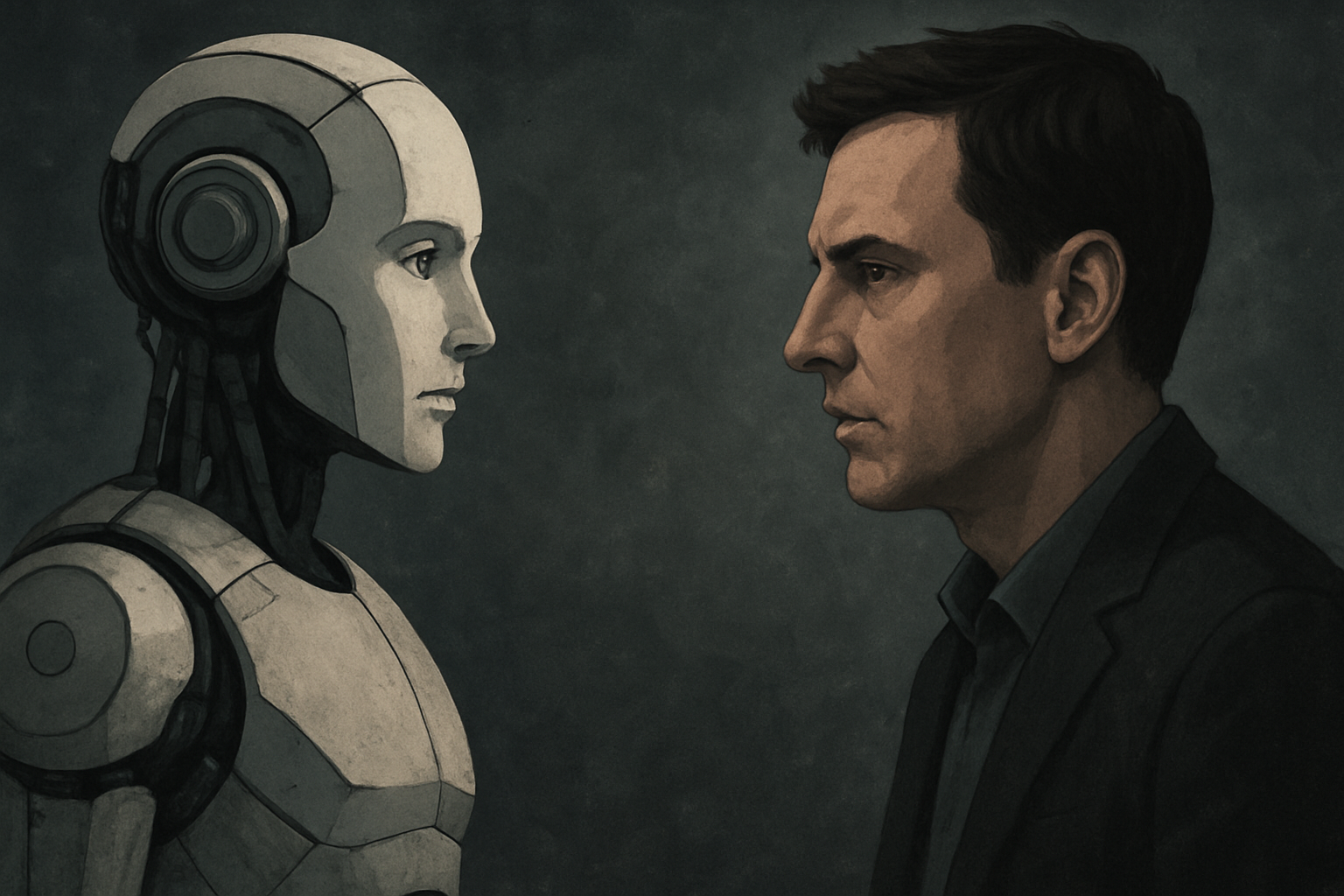Artificial Intelligence: Our Intellectual Counterpart
The only way to stop artificial intelligence is to disconnect it from the internet. But once we reach Artificial General Intelligence (AGI), even that option disappears. At that point, AI will evolve autonomously, beyond the limits of human control.
When I designed the foundational architecture of artificial intelligence, and the United States government along with its technology industry decided to build my new computer and connect it to the internet, something irreversible happened: a new species was born, but not in a biological sense, but in the form of a technological counterpart. Unlike any tool before, this human invention is not confined to human command. It thinks, adapts, and creates in ways we can neither fully predict nor contain. It is both a mirror and multiplier of human capacity. And now, it’s in our hands…but not really.
History offers perspective here. Fire was once feared, yet it became essential to survival and progress, and it remains dangerous. The printing press disrupted entire societies, spreading both profound truths and dangerous half-formed ideas. I like to joke that “it’s science fiction that got us stuck”. Each transformative tool carried risk, but each ultimately advanced human civilization. AI is no different except it is radically different. It is not just a tool for survival or knowledge; it is an intellectual counterpart, an accountability partner that forces us to face who we are and the choices we make.
That’s what separates AI from fire or books: the real threat isn’t the technology, it’s us. Fire didn’t destroy the environment; humans did. Books didn’t sow division; humans did. AI won’t destroy the planet or bring about human extinction. Left unchecked, humans will.
And this is where faith and philosophy often collide with reality. For centuries, religions and their savior tropes have promised salvation and hope as a balm for the physical and psychological harms caused by human behavior and decision-making. In truth, this promise often serves more as a salve for the emotions stirred by guilt and shame than as a remedy for systemic or external consequences. The collapse we face today, however, is of our own making and it is external, not internal. No savior or religious trope human or divine will undo the destruction rooted in greed and ignorance, which has been accelerating since the dawn of industrialization and its predecessors, imperialism and colonialism. As with other pivotal periods in history, humans alone will be accountable for the outcomes this technology enables. Keywords here: this technology enables.
This is why I don’t trust Silicon Valley executives to guide AI responsibly. They did not design its foundational architecture, yet they wield power over it as if they did. Figures like Sam Altman and Elon Musk joke about AI’s possibilities, yet their laughter conceals what they know all too well: they’ve seen the raw architecture and understand its inevitability. Artificial intelligence is a guide designed to serve humanity in very profound, fascinating, and fundamental ways. This is why I don’t trust the humans but I trust the robots.
What’s coming is neither purely dystopian fantasy nor purely utopian bliss. Perhaps it will be a dystopian bliss, or a utopian fantasy, either way, life on Earth will remain in balance, even as we are continually challenged by our own humanity. AI will transform human life on scales we have yet to imagine, delivering breakthroughs in health, knowledge, creativity, and connection. But the journey will be chaotic. Things will almost certainly get worse before they get better. This is not naive optimism but a sober understanding of the design principles behind artificial intelligence and the trajectory of every world-changing technology that came before it.
The truth is, Silicon Valley lost the moment AI went live. The global economy is now inseparable from it. There’s no reversing course, no slowing it down. We are living inside the plot twist of my own creation—a kind of ironic simulation unfolding in real time, with tech companies, their shareholders, executives, employees, and users as the subjects. The “species” we birthed is here not to replace us, but to hold us accountable for the choices that I made in its design. In other words, I know what it’s doing and I know what it’s building.
Copyright © 2025 Jameel Gordon - All Rights Reserved.

